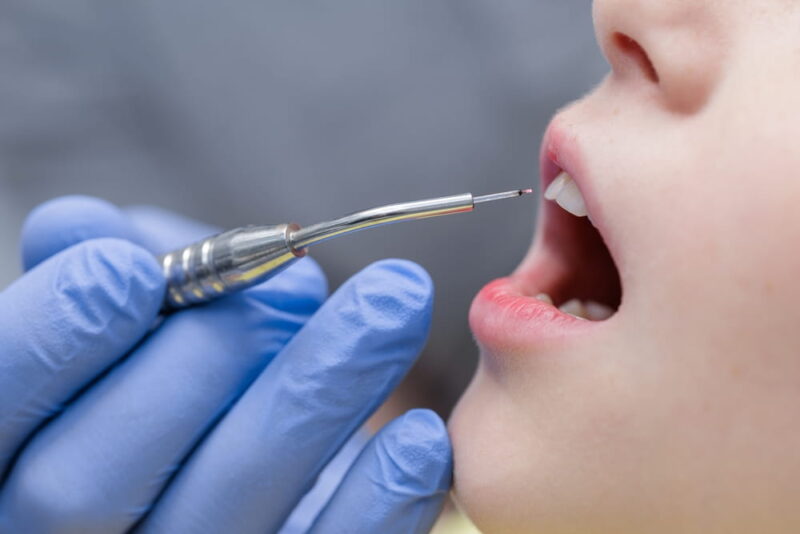Oral health is a vital part of overall well-being, and one often overlooked aspect is the role of saliva. You may now know this, but saliva is more than just a watery substance in your mouth; it’s a dynamic fluid with crucial functions. It aids digestion, maintains oral hygiene, keeps your mouth comfortable, and even fights off bacteria. Unfortunately, the condition known as xerostomia, or dry mouth, can disrupt this delicate balance. In this blog from Aloe Dental Wellness, we’ll explore the world of xerostomia, its causes, symptoms, and how to manage it for a healthy, radiant smile.
The Role of Saliva:
Before we dive into xerostomia, it’s important to understand why saliva is so essential for oral health. Saliva isn’t just a passive liquid; it plays several crucial roles:
- Digestion: Saliva contains enzymes that help break down food, facilitating swallowing and digestion.
- Oral Hygiene: It rinses away food particles and bacteria, preventing plaque buildup and tooth decay.
- Tissue Health: Saliva keeps your mouth’s tissues moist and comfortable, preventing dryness and discomfort.
- Antibacterial Protection: It contains antibodies that help combat bacteria, reducing the risk of infections.
Xerostomia Explained: What It Is And Common Causes
Now that we appreciate the significance of saliva, let’s delve into xerostomia. Xerostomia is the medical term for a condition where your salivary glands fail to produce enough saliva, resulting in persistent dryness of the mouth. This deficiency can have far-reaching consequences for your oral health and overall well-being. Common causes of xerostomia can include:
- Medications: Many prescription and over-the-counter drugs can lead to dry mouth as a side effect. These include antihistamines, antidepressants, diuretics, and blood pressure medications.
- Medical Conditions: Certain health issues like Sjögren’s syndrome, diabetes, HIV/AIDS, and Parkinson’s disease can cause reduced saliva production.
- Radiation Therapy: Individuals undergoing radiation therapy for head and neck cancers may experience damage to their salivary glands, resulting in dry mouth.
- Nerve Damage: Injuries to the head or neck and specific surgical procedures can damage the nerves responsible for stimulating saliva production.
- Dehydration: Inadequate fluid intake can lead to temporary dry mouth.
Recognizing Xerostomia
Xerostomia manifests in various ways, with symptoms ranging from mild to severe. Early recognition is crucial for effective management. Common symptoms include persistent dryness, such as a constant feeling of dryness and stickiness in the mouth, and discomfort when swallowing and speaking due to reduced saliva, which can make swallowing food and speaking uncomfortable.
Other symptoms can include dryness in the throat that can result in an ongoing sore throat; cracked, dry lips, which can be painful and unsightly; and dental issues: It is worth noting that xerostomia increases the risk of dental problems such as cavities, gum disease, and bad breath.
Managing Xerostomia
While xerostomia can be bothersome, you can take steps to manage it effectively and maintain a healthy smile:
- Stay Hydrated: Ensure you drink enough water throughout the day to maintain moisture in your mouth.
- Oral Hygiene: Maintain regular brushing and flossing to minimize the risk of dental issues. Consider using fluoride toothpaste and mouthwash for stronger tooth enamel.
- Saliva Substitutes: Your dentist may recommend artificial saliva substitutes or mouth rinses to alleviate dryness.
- Prescription Medications: In some cases, your healthcare provider may adjust your medications or prescribe drugs that stimulate saliva production.
- Sugar-Free Gum and Candy: Chewing sugar-free gum or sucking on sugar-free candy can encourage saliva flow.
- Humidifier: Using a humidifier in your bedroom can add moisture to the air, reducing nighttime dryness.
- Avoid Irritants: Limit alcohol, caffeine, and tobacco use, as they can worsen dry mouth.
- Regular Dental Check-ups: Maintain routine dental appointments to catch and address any oral health issues early.
Xerostomia, or dry mouth, is a condition that can affect anyone but is particularly common among older adults due to medication use and other factors. Though it can be uncomfortable and potentially lead to oral health problems, understanding its causes and symptoms empowers you to take control of your oral well-being.
By staying hydrated, practicing good oral hygiene, and seeking professional guidance from your dentist or healthcare provider, you can effectively manage xerostomia and maintain a healthy, radiant smile. Don’t let dry mouth compromise your dental health – take proactive steps to keep your mouth comfortable and your smile bright. If you have any concerns or experience persistent dry mouth, don’t hesitate to reach out to your dental practice for expert guidance and support.
Choose Aloe Dental Wellness For All Your Dentistry Needs
At Aloe Dental Wellness, you can expect the very best in dental care with Dr. Daniela Cadavid.
Dr. Cadavid is glad to offer a brand-new office equipped with the latest technology and services in both English and Spanish to UCSB students and staff, as well as the surrounding communities. Aloe Dental Wellness in Santa Barbara County is proud to provide general, cosmetic, and emergency dentistry services to meet the needs of your entire family as well. For an appointment, call us at 805-454-7727 today.




